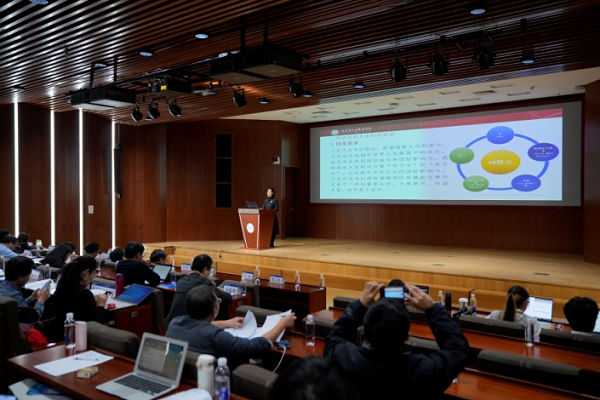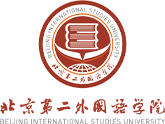
Zhang Xihua, a member of the Standing Committee of the CPC Beijing International Studies University Committee and dean of BISU’s School of English Language, Literature and Culture, led a delegation to attend the sixth annual conference of the China University Alliance for the Development of Foreign Language and Literature Discipline (CUAFLL) in Beijing Dec 13 to 15.
Zhang delivered a keynote speech themed "Exploration and Reflection on AI-Empowered Foreign Language Talent Cultivation", in which she emphasized the importance of cultivating the comprehensive skills of cross-cultural communication, language proficiency and international perspectives among foreign language learners in the era of artificial intelligence.
She mentioned that by leveraging AI technology, higher education institutions can enhance curriculum development, teaching methods and teachers’ abilities, promoting personalized learning and achieving global education goals.
She also spoke about the initiatives BISU has undertaken in cultivating AI-empowered talent.
In addition, she highlighted the limitations and biases of AI in cultivating cross-cultural and international communication skills, emphasizing the need for teachers to effectively integrate the advantages of AI-assisted and traditional teaching methods.

Zhang Xihua delivers a keynote speech at the conference.
The annual conference was co-hosted by Shanghai International Studies University and the CUAFLL, with Beijing Normal University’s School of Foreign Languages and Literatures as its organizer.
The theme of this year's conference was "Advancing Innovation and Development in Foreign Language Disciplines to Accelerate the Construction of a High-Quality Foreign Language Education System".
During the conference, 12 keynote speeches were presented and four panel discussions were held. Nearly 100 foreign language experts and scholars from various institutions gathered to discuss topics such as the development of foreign language disciplines and programs in the context of the new liberal arts background, foreign language curriculum and textbook development in the context of new quality productive forces, foreign language talent cultivation and teacher development in the perspective of building a strong education nation, and foreign language education reform and innovation in the context of digital intelligence empowerment.
Discussions revolved around topics such as artificial intelligence and the cultivation of outstanding foreign language talents, the development of foreign language curriculum systems, and professional development for teachers.
Yang Tao, the assistant to the dean of the School of English Language, Literature and Culture at BISU, also participated in the conference.

Links
